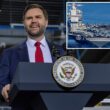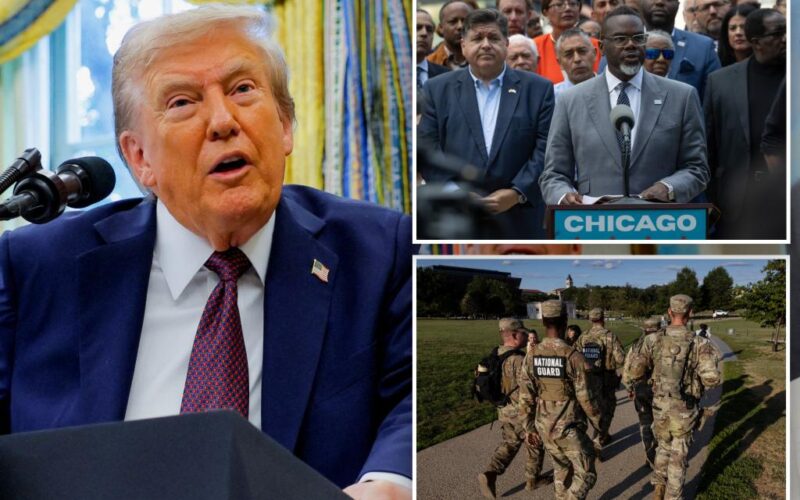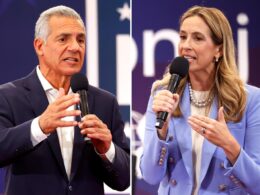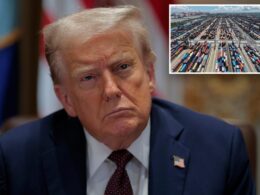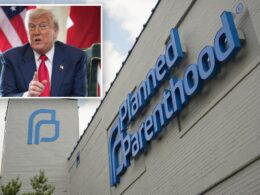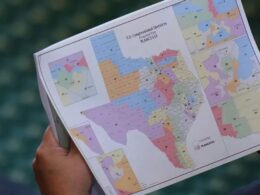National Guard troops will be ordered into Chicago to wrangle the city’s crime, President Trump vowed Tuesday, following a bloodbath Labor Day weekend in the Windy City.
Trump declined to provide a timeline for the action, but reports have begun emerging that it could happen as soon as this week.
“We’re going in,” Trump told reporters during an Oval Office meeting. “I didn’t say when.”
The commander-in-chief has previously said he didn’t want to deploy federal troops until invited by local Chicago and Illinois leaders, but said Monday he was done waiting.
“If the governor of Illinois would call up, call me up, I would love to do it.” Trump said of Gov. JB Pritzker. “Now, we’re going to do it anyway. We have the right to do it.”
The announcement comes after eight people were killed and 58 wounded in at least 32 different shootings in Chicago over the Labor Day weekend.
One neighborhood saw two mass shootings within 48 hours.
Despite the violence, Chicago Mayor Brandon Johnson declared “No federal troops in the city of Chicago!” during a fiery speech Monday – and days earlier signed an executive order passing measures intended to resist Trump’s plans.
It remains unclear exactly what the National Guard presence in Chicago will look like.
While the federal government has jurisdiction over Washington, DC – where Trump ordered troops earlier in August — in cities where the National Guard hasn’t been requested, troops are only allowed to protect local federal buildings and personnel.
That’s what was largely seen in Los Angeles in June when the National Guard and Marines were dispatched to address anti-ICE protests which focused on federal detention centers where illegal immigrants were being held.
In DC, the troops have largely maintained presences in prominent public spaces like transit centers, and at the city’s many landmarks.
But city leaders have said the presence has already made a notable difference — with crime down 45% from the same time last year.
After Trump’s comments Tuesday, Pritzker told reports he believed staging for the deployment began Monday and that troops would be stationed around federal buildings in the city.
He also claimed ICE and DHS officers would be dispatched to conduct widespread immigration raids in the city’s Latino neighborhoods — and that federal troops might be assigned to accompany those officers.
Pritzker also reiterated that no request had been made for the National Guard by the city or state – and that he was baffled by Trump’s repeated suggestions that local leaders should be asking for federal help.
“Chicago does not want troops on our streets,” he told reporters. “When did we become a country where it’s okay for the US president to insist on national television that a state should call him to beg for anything — especially something we don’t want?
“Have we truly lost all sense of sanity in this nation that we treat this as normal?”
Mayor Johnson agreed, saying “we do not want or need a military occupation in our city” before accusing Trump of allowing the guns to flow into the city.
But not everybody in Chicago agreed with that opposition.
Danielle Carter-Walters, a South Side resident and co-founder of Chicago Flips Red, said she sees danger on the streets every day, adding that many of her neighbors welcome Trump’s troops.
“I stay on the South Side of Chicago,” she told Fox News. “I’m living the experience. You can’t sit in your car without worrying about being robbed, mugged, shot, carjacked.”
“We definitely need something to be done,” she added.
And Aaron Del Mar, the Republican Party chairman for Cook County, thinks local leaders are letting politics get in the way of what could be a serious chance to address crime.
“This is a unique generational opportunity for Illinois and for the city of Chicago, and I think that the politics are getting in the way,” Del Mar said.

